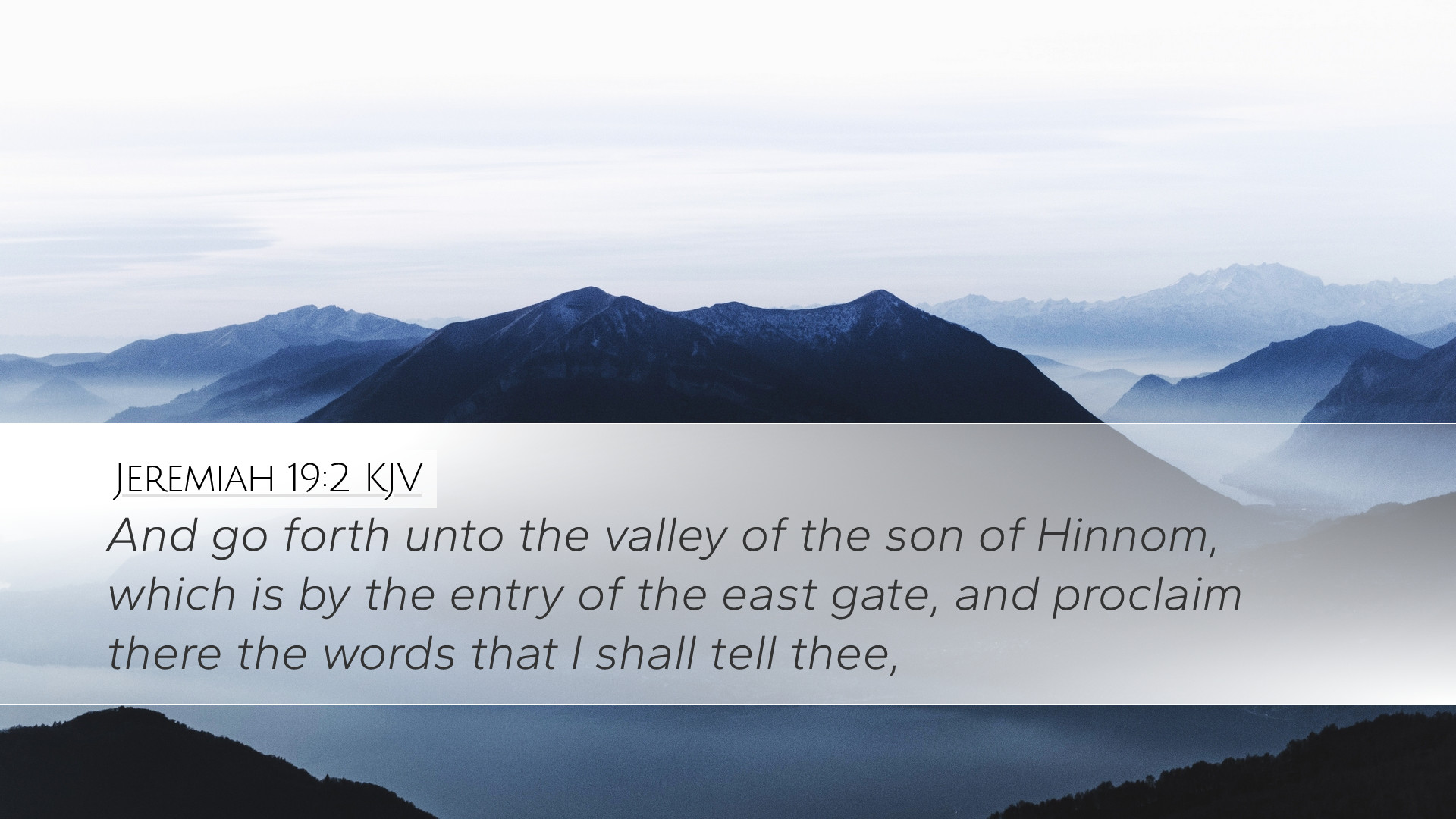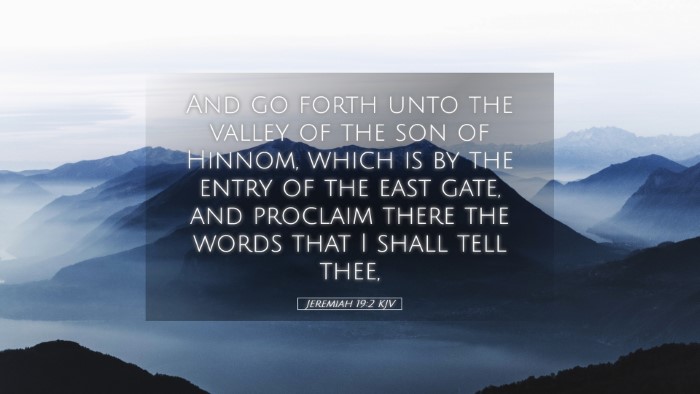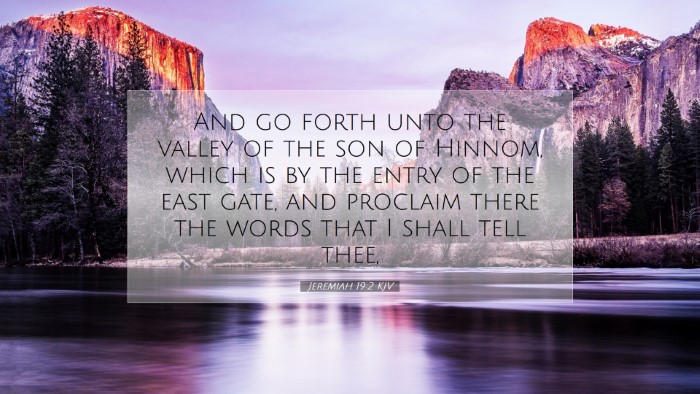Commentary on Jeremiah 19:2
Bible Verse: "And go forth unto the valley of the son of Hinnom, which is by the entry of the east gate, and proclaim there the words that I shall tell thee."
Introduction
The context of Jeremiah 19:2 is rooted in one of the many prophecies delivered by the Prophet Jeremiah, a major figure in the Old Testament known for his somber messages regarding the coming judgment on Judah. In this verse, God instructs Jeremiah to go to a specific geographical location—the valley of the son of Hinnom—to deliver a significant prophetic declaration. Understanding this verse requires a deep dive into its historical and theological implications.
Historical Context
The valley of the son of Hinnom (Gehenna) was a location associated with idolatry and child sacrifice in the ancient Near East, particularly among the Canaanites. It became a symbol of judgment due to its dark past regarding the worship of Molech. Matthew Henry emphasizes that this area had become infamous not only as a physical locale but also as a representation of spiritual and moral decay that plagued Judah.
Geographical Significance
The mention of "the east gate" provides geographical specificity that anchors Jeremiah's message both physically and spiritually. Albert Barnes notes that places carry significant weight in biblical narratives, often symbolizing the spiritual state of the people. The east gate, in this context, could symbolize the entrance to the city where God's presence was traditionally acknowledged, juxtaposed against the backdrop of rebellion and paganism present in the valley.
Divine Instruction
God's directive to Jeremiah underscores the important role of the prophet in conveying divine messages. Adam Clarke elaborates on this by pointing out that the prophetic call often requires speaking difficult truths, especially when the audience may reject or ignore them. Jeremiah’s obedience in proclaiming the words God would provide reflects a central theme in prophetic ministry: the call to communicate God's truth irrespective of personal cost.
The Nature of the Proclamation
- Judgment Against Idolatry: The message delivered in the valley would undoubtedly be one condemning the sins of open idolatry and the associated practices that brought God's wrath.
- Hope and Warning: While the context primarily focuses on judgment, it is essential to understand that prophetic messages often contained elements of hope or warnings for repentance.
- Consequences of Disobedience: This proclamation serves as a reminder of the severe consequences Israel would face if they continued in their disobedience.
Theological Implications
Jeremiah 19:2 carries significant theological implications relevant for today's pastors and theologians. Firstly, it highlights God's ongoing desire for His people to turn from sin and return to Him, even when faced with impending judgment. Secondly, the act of going to a specific place to deliver God's message illustrates the importance of obedience in the ministry. God's choice of a location rich in historical and spiritual meaning reinforces the message being declared.
Lessons for Pastors and Scholars
- Proclamation in Difficult Places: Just as Jeremiah was sent to a troubling location, modern ministers are often called to preach in challenging contexts, reminding them of the need for faithfulness amidst trials.
- Importance of Context: Understanding the historical and geographical context enhances the preaching and teaching of Scripture, allowing for richer theological insights.
- Faithfulness to God’s Message: The commitment of Jeremiah serves as a model for today's leaders—being willing to convey God's message regardless of its reception.
Conclusion
In conclusion, Jeremiah 19:2 is not merely a historical note but a profound encounter between the prophet and God that resonates today. It showcases the unyielding nature of God's call for repentance and highlights the necessity for faithful proclamation in the face of adversity. The insights gleaned from public domain commentaries enhance our understanding of the profound implications this verse holds not only for ancient Israel but also for contemporary believers engaged in ministry.
Reflections for Further Study
- Consider the implications of places in the biblical narrative and how they affect the understanding of God’s messages.
- Explore how contemporary church leaders can mirror Jeremiah’s obedience amidst societal challenges.
- Reflect on the balance between proclaiming judgment and offering hope in today’s preaching.


